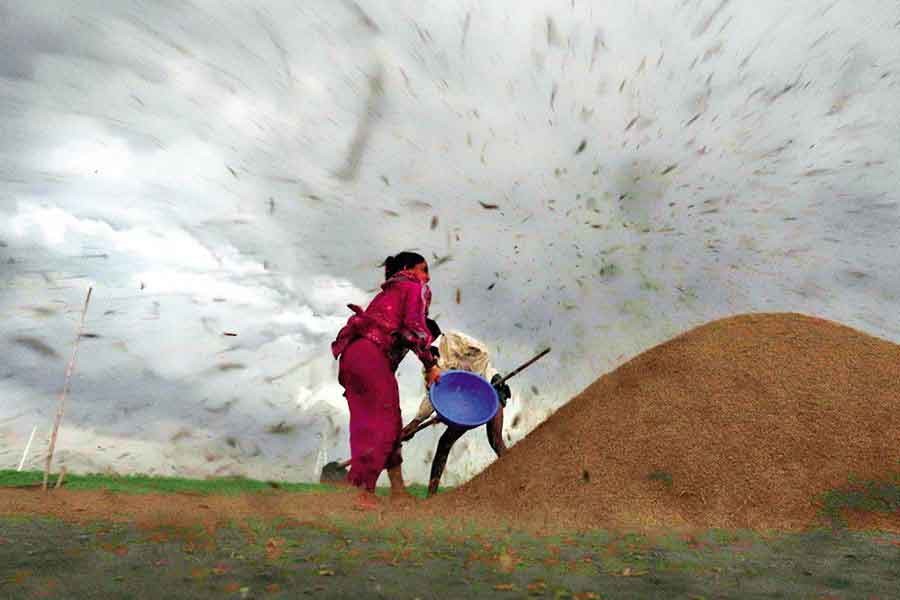A strong indicator of climate change, an erratic weather pattern has, of late, been leaving its harmful impact on the country's agriculture. Heat waves that swept through 36 districts in April this year damaged standing crops, especially, rice, worth Tk 3.0 billion over 70,000 hectares of land. Though the temperature in April usually reaches a maximum of 33 degrees Celsius, this time it was 35 degrees for two days in a row. The extreme heat, also called, heat-stress, affected some other crops including maize, peanut and banana. Considering the magnitude of the damage that just two days' heat wave could do to rice and other crops, it bodes hardly well for life in general and agriculture, in particular, in Bangladesh in the days to come.
Climate experts are of the view that unpredictable weather events are going to become a common feature of life. As such, frequent spells of extreme heat along with longer summers, shorter winters, consecutive floods, downpours and droughts, often in the wrong season, will be seen to happen oftener. This calls for, first, assessing the potential damage that the said climate events may inflict on different types of crops. And then devise ways to protect as well as adapt the cultivation practice of those crops to the environmental changes wrought by the erratic weather. The Intergovernmental Panel on Climate Change (IPCC), for example, holds that by 2050 due to heat-related impacts, rice production in Bangladesh may decline by 8.0 per cent, while wheat by 32 per cent, where short-lived winter would play its part. Such prediction is based on a number of studies conducted on the subject which say that for a temperature rise from 1.0 degree Celsius to 2.0 degrees combined with other attendant factors induces sterility in rice spikelets. According to the same source, the heat-stress might reduce wheat production by 32 per cent. Potato production, on the other hand, would be negatively impacted by moisture-stress which is a condition created by untimely rain. Obviously, these research findings will have to be factored into the nation's long-term food security strategy.
Doubtless, these constitute a gale warning for a developing nation, Bangladesh, with its huge population but a rather small amount of arable land available for growing food crops. To be candid, Bangladesh has already been braving the violent weather events without much support from international quarters. Given the discomforting truth that Bangladesh is among the six nations most at risk from climate change, its mitigation and adaptation measures must be equal to the challenge ahead.
At this point, there is reason for concern, as the resources the government allocates each year for climate adaptation and mitigation is learnt to be lacking direction. In fact, proper selection of the projects is crucial to success of an adaptation strategy. Consider, for example, the problem of protecting agricultural lands of the southern coastal districts. As the rising level of salinity in those areas is a life and death question for the farmers there, there is no room for any laxity regarding project selection and fund allocation in those salinity-hit areas. Desertification in the arid, semi-arid and dry, sub-humid zones is another danger lurking in the climate shadows. Attributable to prolonged uncertainties in weather pattern, urgent moves would be necessary to arrest the process in areas, especially susceptible to this trend. Evidently, the climate change poses a colossal challenge to the nation's main source of sustenance, agriculture. Matching steps should be afoot to meet the challenge.


